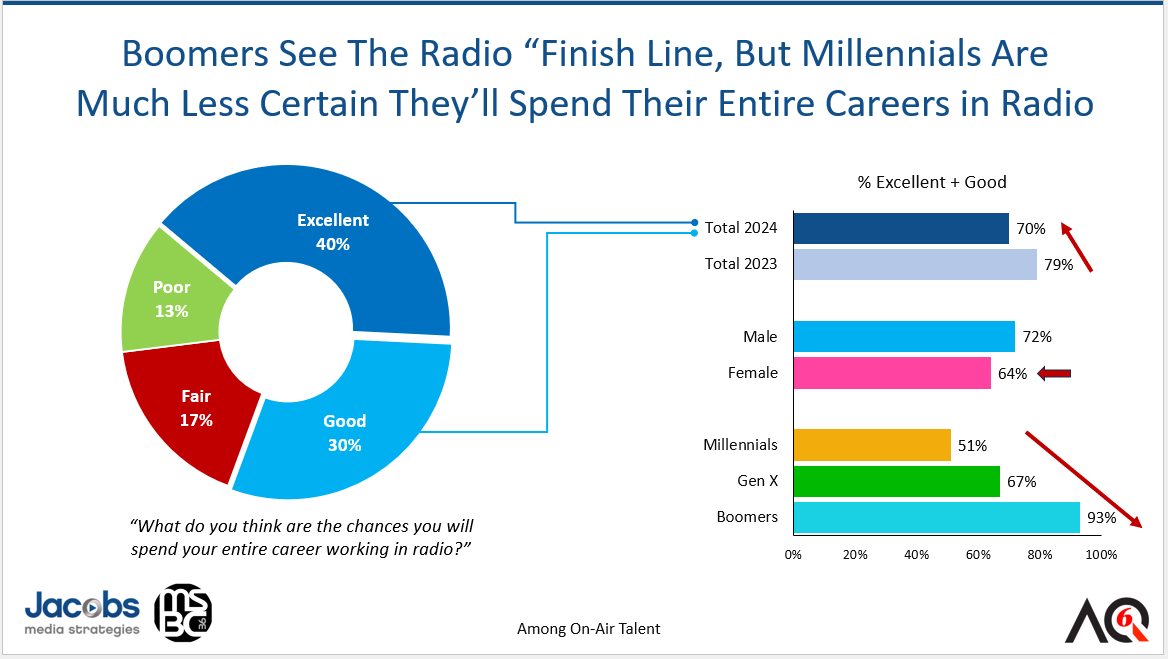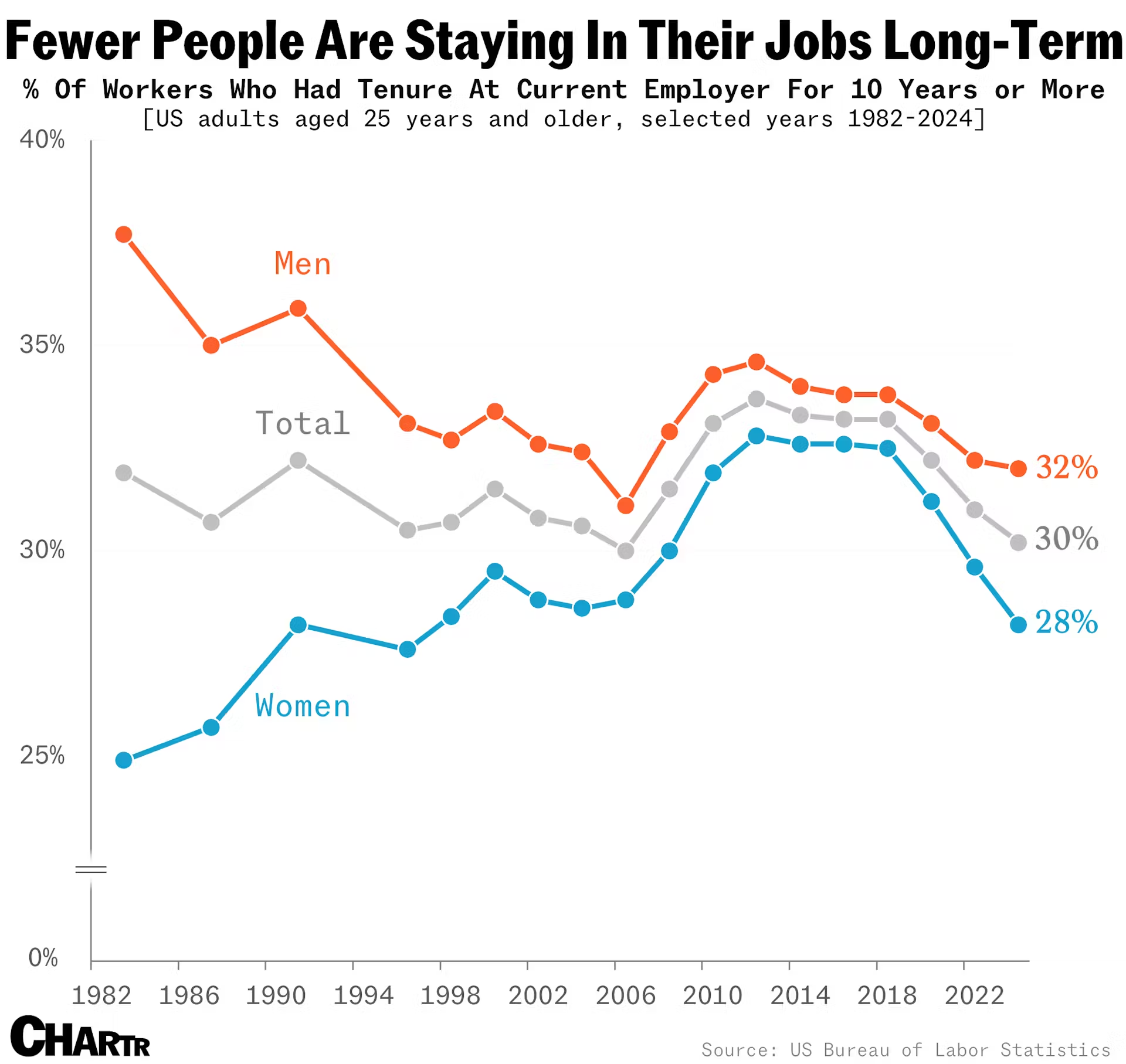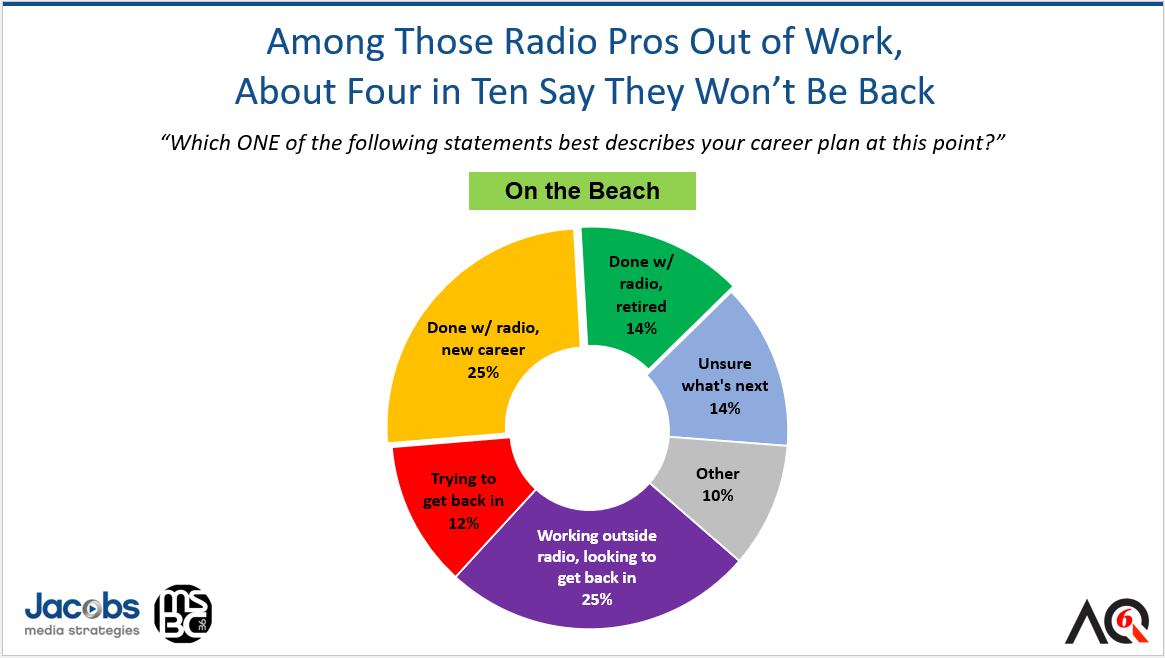
What are the chances you’re going to spend the rest of your career working in radio?
For many of us, that is a complicated question hinging on lots of different variables. They include how long your current employer decides you’re a valuable member of the team. And whether it is your desire to stay in radio until retirement. For some of us, work load and that elusive work/life balance occupies a high priority. There’s also the question of whether your current employer is acquired or makes an important purchase of another company. And finally, what about the shape that radio is in over the next several years – that might come into play, too.
Of course, your age, your specific job, your upward mobility, and your compensation figure into this life equation, too. Along with the market you’re in, your current job duties, and what you aspire to do next year – and beyond.
While radio has never been thought of as a stable profession, the moving and shaking of the past couple decades, and even the past few years, have been turbulent. And the RIFFs and right-sizing continue right up to the time this blog post is being written. Every wave of layoffs creates its own unique sense of insecurity, fear, and foreboding.
I may not know about how long general managers, salespeople, program directors, or traffic managers plan on hanging around in radio, but I do have a pretty good idea about how air talent feel about their longevity in the business. That’s because we’ve actually asked the question before in our AQ studies, including our most recent study fielded just this past summer.
Not surprisingly, those who have already spent most of their careers entertaining and informing on the airwaves – the Baby Boomers – are most likely to conclude they’ll be radio “lifers.” For Millennials and women on the air, sticking around for the entirety of their working years is far from a done deal. And in the main, feelings of stability are shakier – while seven in ten feel they’ll end their careers in radio, this is down nine points from a year ago.

How long do radio’s rank and file think they’ll still be working for the same employer? That’s a whole different matter, especially during these precarious times. But we do have general data that sheds some light on how employees view their life spans with the companies they work for now.
Data from the Bureau of Labor Statistics, reported by Sherwood News, reveal that employees in the U.S. are less likely to stay with their jobs for a decade or more. And once again, women are even less likely to stay on the payroll at the company or organization where they currently work:

In fact, the average tenure with an employer is just 3.9 years – the lowest it’s been in 22 years.
As Sheridan reports, the “job for life” concept that our parents or grandparents may have experienced is an anachronism in the current environment. And once again, women move in and out jobs faster than men.
So, it’s not just radio. The days when people spent their entire careers working for the same companies are in the past.
But for those of us radio employees, we’re increasingly less likely to stay in the business – period.
Those “on the beach” are even less confident about ever “getting back in the game.” In AQ6, we have a small subsample of the unemployed (N=59), and no surprise – they’re less bullish about the trajectories of their radio careers:

Understandably, they’re less likely to like the chances they’ll be able to get back into the business. In fact, four in ten (39%) tell us they’re done with radio.
A less stable workforce and employees less committed to their careers can’t be good for radio over the long haul. But that’s the world in which we live.
So how’s that 401K doing?
- For Radio, Where Does Digital Revenue Go From Here? - June 6, 2025
- “My Favorite Decade Of Music Is The __’s” - June 5, 2025
- Who’s Got It Better? Talent In Commercial Radio vs. Talent in Christian Music Radio - June 4, 2025




Radio was never a “stable profession,” but it’s gotten immeasurably more unstable in the 5+ decades I have under my belt. It’s tough to stay committed to a career when companies are primarily committed to upper management and shareholders. Third in the pecking order are advertisers, then local management, sales, and perhaps a tie between on-air talent and engineering. On one hand, there’s a lot less talent in most stations than in the past. On the other hand, they’re often expected to provide content for multiple air shifts (it’s hard to call them “shows”) on multiple stations. The pay for most talent barely makes “average wages” for the area without supplementing with outside gigs and appearance and consequently more hours. Incoming pay is likely to be less than most fast-food workers are making these days.
You have to be committed to be in radio these days. Or maybe you should be.
Brian, that ending paragraph speaks for many (most) of us.
Lifer. Guilty as charged. Fufills mission & service.
You had me at “lifer,” Clark.
In this case, radio is no different than any other industry. Employers no longer even pretend to have your back – you accept positions knowing that you are more or less expendable. It’s baked into the model.
It does seem to be part of the bargain, Vince, sad but true.
The best strategy IMO is to make radio one ‘spoke’ in a career wheel that incorporates all aspects of electronic media. Do some TV, do some radio, do plenty of social video, get good at publishing web pages, and freelance yourself as a podcast recordist/editor for others.
The big buzzword about 15 years ago was “Convergence.” The smart ones have already converged, but there’s still time.
And yeah, lifer here. I dont regret a moment of my decision.
41 Years 6 Months 1 Day of continuous employment in Rock Radio here in the Chicagoland area and I assume every show I do will be my last . . . It’s been an honor, a blessing & a nightmare all rolled up into the blur I refer to as my radio career . . . May the flashing red light atop my transmitter tower never go out…………
I’ll raise my coffee mug to that sentiment, Freak. Congrats on a great run in the same great market.
A former co-worker said to me long ago that a career in media sales will include at least five job changes, whether planned or not. I have had three “unplanned” job changes in my 45-year career and just two planned. So, my career has been fun but fits into the theoretical norm. Fortunately, my current employment experience has provided me with 14 years of solid sales where I have created several new sponsors over those years. It’s obviously been a great fit!
As they say, John, it goes with the territory. While easier said that done, those who find themselves “on the beach” might find solace in the notion that everyone get fired at one point or another. It is what it is.
Fred: Started in radio at age 18, just turned 70. Still at it, now doing mornings at iHeart’s news-talk station in Orlando. Definitely a “lifer!”
Alan, you are indeed! Congrats on putting together a great run, Alan! Great to hear from you.